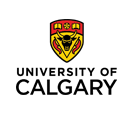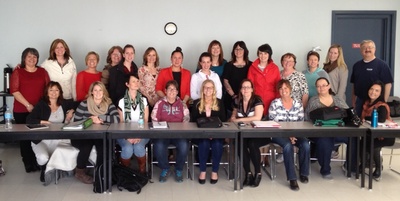Child protection is a sensitive and complicated subject, but one that the Faculty of Social Work and Alberta's Ministry of Human Services are addressing. Their long-standing partnership has provided the means and grounds for the faculty to begin a Master of Social Work (MSW) cohort focusing on child welfare practice. It is a vital step that is reinforcing frontline workers’ skills and their ability to achieve positive results for vulnerable children.
“This is long overdue,” says Jackie Sieppert, dean of the Faculty of Social Work, “but I don’t think our systems were ready for it until now. [Child welfare] work is probably the most complex work we hand any professionals in our society.”
The one-time cohort is offered to Ministry of Human Services’ employees. It became a possibility as a result of additional funding that the faculty received from the provincial government starting last fiscal year. The cohort of 25 child welfare professionals will take 10 classes over the span of two years, and participate in 525 hours of field practicum.
Initial block week course focused on issues of diversity
The cohort kicked off last month with a block week course taught by Social Work’s Anne-Marie McLaughlin and Betty Bastien. “Diversity, oppression and social justice” takes a critical look at the issues of diversity in Canadian society, with specific attention paid to indigenous peoples and child welfare practice.
“A strong focus was on the cause and effects of intergenerational trauma including colonization, cultural genocide, and the long-lasting impact of the residential school experience,” says McLaughlin.
She adds, “It was a privilege for me to have the opportunity to teach and learn from this group of professionals. Many had more than five to 10 years of front-line and supervisory experience.”
Child welfare is not confined to one particular group of people. It is an issue that spreads into all corners of human society. Kansus Connellan, a student in the program, has worked in child welfare for nearly 24 years in rural northern Alberta.
“I have seen our system fail all too often, and feel very strongly that [we] need to accept that change is the only solution,” says Connellan. “We have to embrace the need to think outside the box, make ourselves vulnerable and go for it with all of our collective energy.”
Cohort is first of its kind
This cohort is the first of its kind, and is expected to greatly contribute to child protection initiatives in Alberta.
“While only one week into the program, I have already experienced a shift in my thinking and practice, and hope to continue this journey,” Connellan says.
Judy Delorme is a fellow student in the program and provides support and training for Alberta First Nations in her role at Human Services. “Children are our most vulnerable members of society and they are the root of a healthy thriving society and culture. Even after just one week in the program, I am more knowledgeable and passionate about being a change agent in my work and world.”
The cohort's next course is scheduled for the spring 2015 term.








